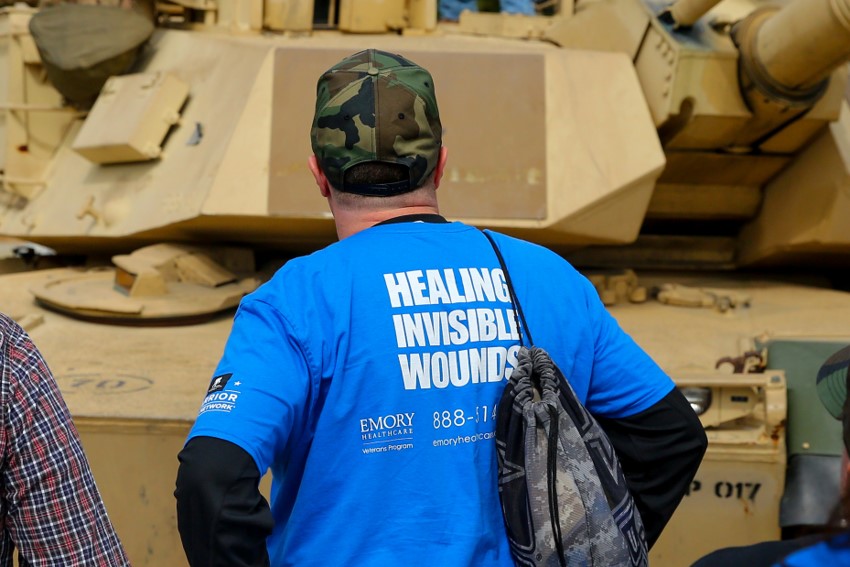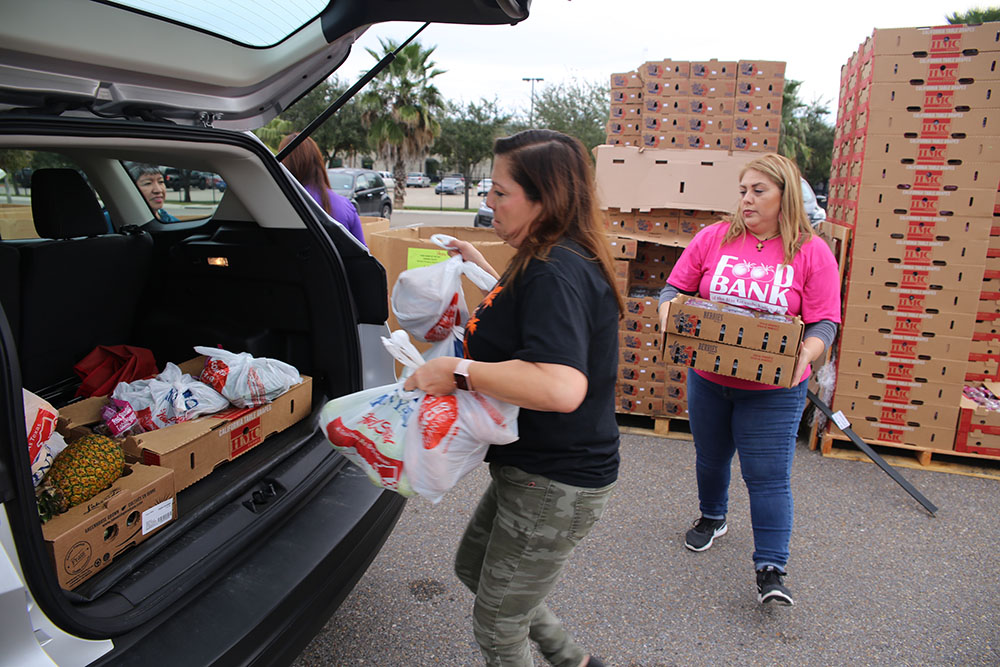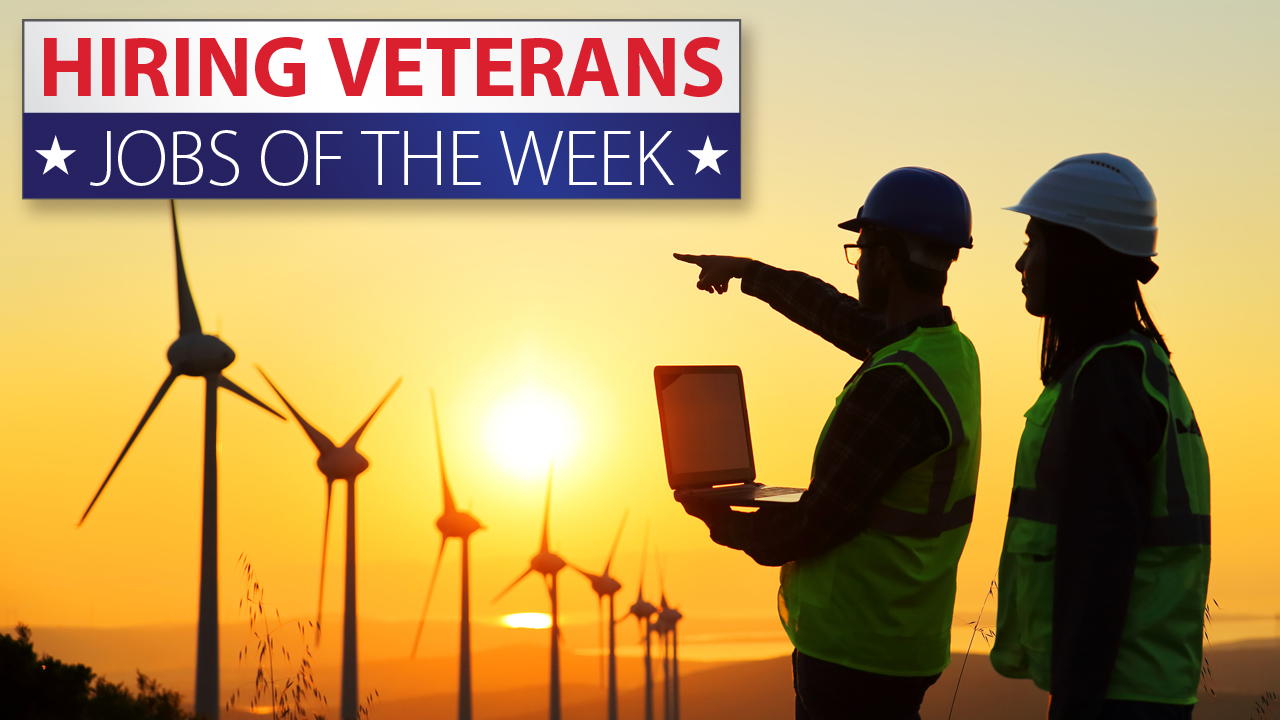Emory Healthcare Veterans Program
For many Veterans and service members, the joy of being home is often overshadowed by the trauma of service experiences. Emory Healthcare Veterans Program (EHVP) provides help for those dealing with the mental and emotional after effects of service such as: post-traumatic stress disorder (PTSD), traumatic brain injury (TBI), military sexual trauma, anxiety, and depression related to past military service.

“You can’t get therapy from your buddies. You can talk to them but they’re not trained professionals. The treatment at EHVP worked for me because I felt like I could trust my therapist. I knew she understood where I was coming from and that created comfort for me,” said Derrick B.
Some warriors suffer from frequent nightmares, are constantly on edge, jump at sudden noises or prefer to stay at home instead of socializing. Kyra Watkins, a U.S. Army Veteran and former EHVP program participant, said, “I would get really angry and snappy and mean to my friends, and I had a lot of anger and unresolved issues that I didn’t deal with. They said, ‘You really need to get help.'” After completing treatment at EHVP, Kyra’s whole life changed.
Collaborative approach
EHVP takes a collaborative approach to healing, beginning with a comprehensive individual assessment conducted by top specialists in the fields of psychology, psychiatry, neurology, rehabilitative medicine and wellness.
The program treats eligible post-9/11 Veterans and service members regardless of location, discharge status, deployment history, or length of service. There are two treatment options available: the Intensive Outpatient Program (IOP) and the more traditional Outpatient Program (OP).
The IOP is a full-time, two-week program. Through daily appointments, program participants experience symptom reduction, health promotion and improved relationships and social functioning. Watkins found great value in the program because it helped her assimilate back into a normal routine. She said, “Thanks to Emory’s IOP, I can sit in a coffee shop near my home and tell my war stories to a complete stranger.”
The traditional Outpatient Program is an option better suited for those living in close proximity to EHVP (Atlanta, Ga.) and who are unable to dedicate two weeks to the IOP. Typically, traditional outpatient services involve weekly, or as needed, visits with a psychologist.
Who is Eligible?
EHVP currently serves post-9/11 Veterans and service members, regardless of discharge status, deployment history, length of service, or location of residence.
Not eligible:
- Unmanaged bipolar disorder
- Schizophrenia or other psychotic disorders
- Substance abuse to the level of dependence
- Active suicidality or homicidality
Treatment Models: 2-week IOP (Intensive Outpatient Treatment Program) – Veterans attend daily appointments from approximately 0800-1700 and recreational activities in the evenings and on the weekend. Also, weekly outpatient services are available.
Cost: If insured, Emory pays any costs not covered by the Veteran’s insurance. If uninsured, Emory pays the entire cost of treatment, travel, and meals for the IOP. There are no out of pocket expenses for Veterans.
If you or someone you love is struggling with invisible wounds, Emory Healthcare Veterans Program is completely confidential and ready to help at no cost to the warrior.
For more information, please contact 888-514-5345, visit emoryhealthcare.org/veterans, or follow EHVP on Facebook at @EmoryVeterans.
The sharing of any non-VA information does not constitute an endorsement of products and services on part of the VA.
Topics in this story
More Stories
The $100,000 Community Catalyst Challenge identifies trailblazing organizations and revolutionize how we engage with Veterans and their families.
The Social Security Administration is hoping to make applying for Supplemental Security Income (SSI) a whole lot easier, announcing it will start offering online, streamlined applications for some applicants.
This post contains jobs for the week of Dec. 16, 2024. Each week, we post relevant and timely listings as we receive them, and for the locations listed.







Still no program for pre 9/11. Desert Storm Era vets should be included also.
Why only post 911 ?
What about us Vietnam vets ?
The wounds are visible. You need to read “The Body Keeps the Score”. The VA acts like they are ignorant to the true affects of war. Deny until they die. Veteran suicides are the quickest way to sweep issues under the rug.
Yes another program for vets after 9-11. I guess us Vietnam, Korea’s, etc etc veterans can recall all we did in combat was sit at Ann Co club getting drunk